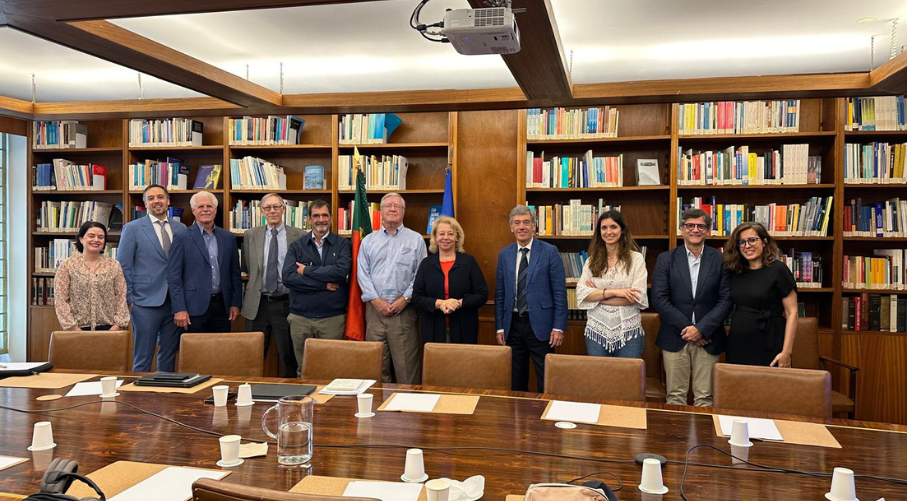Analyze the past year’s activities, approve the present work plan and look to the future. It was with these objectives in mind that the Governing Board of the UT Austin Portugal Program met at the Foundation for Science and Technology at the beginning of June, in a session chaired by Madalena Alves, President of the Foundation’s Board of Directors, and attended by the Partnership’s national and North American boards, as well as the Chair of the External Review Committee, Peter Arzberger.
The Governing Board had the opportunity to look back at the year 2023 and hear the Program Management’s proposal for what is now underway. “Despite the fact that 2024 corresponds to an extension year for Phase 3, the UT Austin Portugal Program’s Executive Director, who brings together the leadership in Portugal and at UT Austin, has proposed a plan of activities for the various components and scientific areas that reinforces the commitment to making initiatives with high impact potential viable,” explains Andreia Passos, UT Austin Portugal Program’s Executive Director in Portugal.
Examples of these initiatives are the Energy courses promoted by TxEEE – Texas Engineering Executive Education, specifically formatted for the Program’s community in Portugal, or a new intensive and immersive program involving instructors from the US National Science Foundation (NSF) program, I-Corps, scheduled for the end of 2024, which will be announced soon.
Also presented was the intention to launch a new call for funding for exploratory research projects in collaboration with UT, as well as the work being done by the Partnership to organize two major networking events in the second half of the year. “These are two working moments, based on prospective exercises, one in Austin and the other in Oeiras, which will allow the transatlantic community to actively participate in building scenarios for the Program and defining its role in projecting Portugal as a country that produces science with impact, committed to strategic partnerships with top academic players such as UT Austin,” says Andreia Passos.
According to the UT Austin Portugal official, transatlantic scientific mobility was also highlighted in the proposed activity plan for 2024, with UT Austin noting that exchanges would take place not only through the regular call for short-term internships at the US university, but also through ongoing exploratory projects. “On the US side, funding for the R&D teams in the projects has been reinforced to encourage UT researchers to come to Portugal for short and medium-term visits,” explains UT Austin Portugal Program’s Executive Director in Portugal.
Peter Arzberger, chair of the Program’s External Review Committee (ERC), presented the Governing Board with the latest report produced by this body, and highlighted the Program’s ability to innovate and the way it has maximized the value of its initiatives.
The 2024 Activity Plan and the respective funding requested by the National Directorate were unanimously approved by the Governing Board.
The Governing Board is chaired by Madalena Alves, President of the Board of Directors of the Foundation for Technology and Science (FCT), together with Robert A. Peterson, representative of the University of Texas at Austin, José Manuel Mendonça, National Director of the UT Austin Portugal Program and representative of the Portuguese Universities, Célia Reis, CEO of Capgemini Portugal, and António Vidigal, former CEO of EDP Inovação, representing the Industrial Advisory Board.
Also, present at the meeting were John Ekerdt, Principal Investigator of the Program at the North American partner, Rui Oliveira, Co-Director of the Program in Portugal, Marco Bravo, Co-Principal Investigator and Executive Director of the Program at UT, Ana Reis, International Partnerships at FCT, and Vera Pinto, International Relations Officer of the Program in Portugal.

